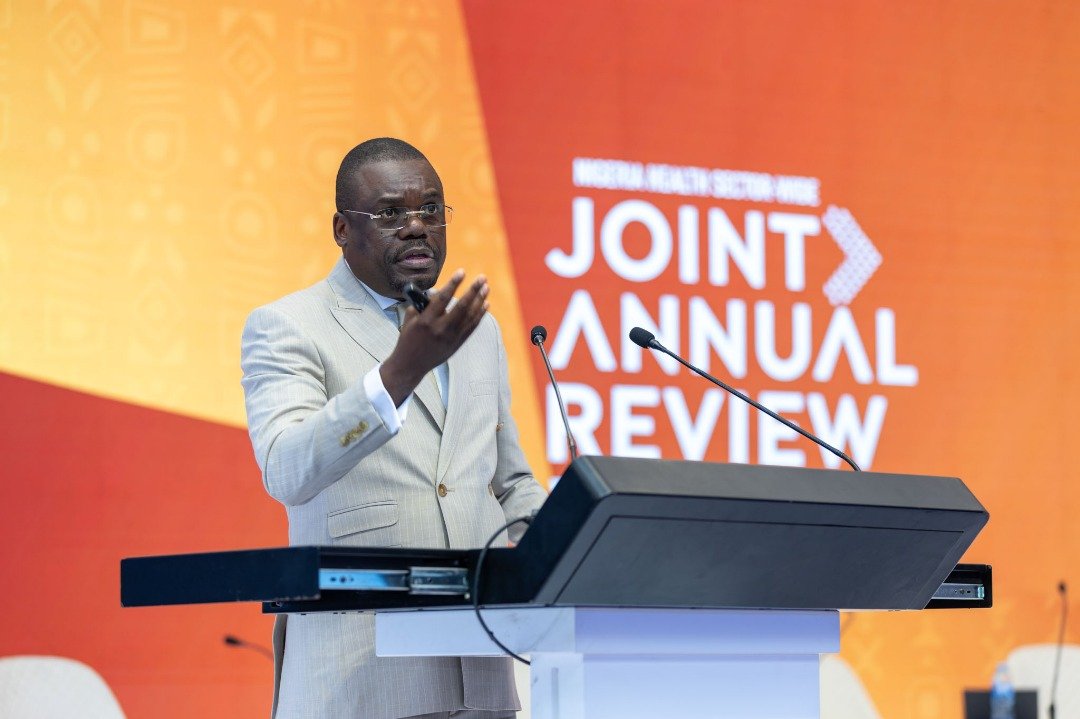By Iyemah David
The Africa Centre for Disease Control and Prevention (Africa CDC) said that Nigeria’s ongoing health sector reforms, are applicable model for other member states in advancing Primary Health Care (PHC) systems.
Director-General of the Africa CDC, Dr Jean Kaseya, made this known in Abuja during the Joint Annual Health Sector Review.
The JAR2025 is a forum to assess progress, share lessons and drive accountability in Nigeria’s health sector.
This year’s theme, “All Hands One Mission: Bringing Nigeria’s Health Sector to Light,” shines a spotlight on the strength of the people, the resilience of the systems, and the dedication of the frontline health workers.
Dr Kaseya said the presence of Nigeria’s Minister of Finance at the meeting signified a strong political commitment rarely seen in other countries.
“By bringing the Minister of Finance into this discussion, Nigeria is demonstrating strong political will. In many countries, finance ministers do not attend health reviews.
“What we see here is genuine leadership and momentum that is transforming the system,” he said.
He cited Rwanda’s community-based health insurance as an inspiring example, where 88 per cent of the population is covered and out-of-pocket spending is reduced by the same rate.
“Imagine if Nigeria cuts out-of-pocket spending by 88 per cent. The world would migrate here because it would become another paradise,” he added.
The Africa CDC director- general noted that Nigeria’s reforms, including the Sector-Wide Approach (SWAp), digital transformation agenda and drive for domestic and innovative financing, align with continental priorities to reduce dependence on Official Development Assistance (ODA).
He said that Nigeria’s digital payroll reform had already saved more than ₦220 billion by eliminating ghost workers and reducing inefficiencies in the health sector.
Dr Kaseya also praised Nigeria’s effort to engage the private sector in local health manufacturing, citing Alhaji Aliko Dangote’s investment in bed net production as an example of home-grown leadership that strengthens national capacity.
He said that under the leadership of President Bola Ahmed Tinubu and Professor Muhammad Ali Pate, Nigeria was showing how countries could expand their fiscal space for health through better planning, transparency and resource mobilisation.
“When you plan properly, digitalise your systems, eliminate ghost workers, and strengthen insurance coverage, you do not need more than 30 per cent of external aid to fund your health system. That is the direction Africa must take,” he said.
The Africa CDC chief disclosed that Nigeria had been selected, along with a few other countries, as a pilot nation for integrated health system alignment and performance tracking over the next two years.
He said global partners, including Gavi and the Global Fund, would now be encouraged to align with Africa’s Lusaka Agenda, which promotes donor coordination and stronger country ownership of health systems.
“We are asking all partners to become Lusaka compliant. Without supporting the SWAp and national priorities, it is useless. Nigeria’s example shows it can be done,” he said.
He reaffirmed Africa CDC’s pride in Nigeria’s achievements, noting that the country’s reforms were based on evidence and delivering measurable impact.
“I came here for the world to know that Nigeria is moving forward. When I speak about Nigeria, I do so as a neutral observer who has seen the evidence of real progress,” he said.




